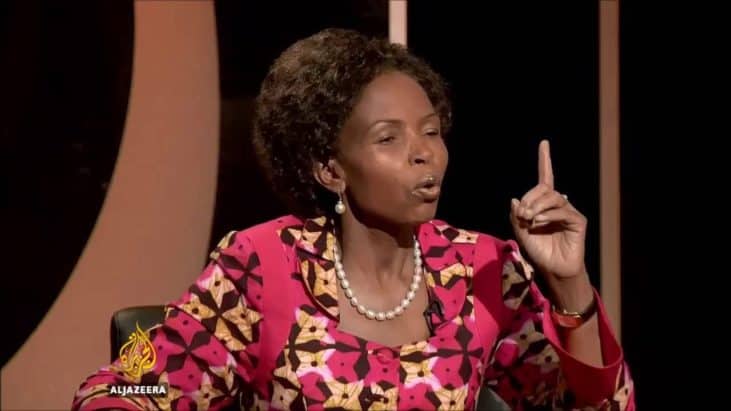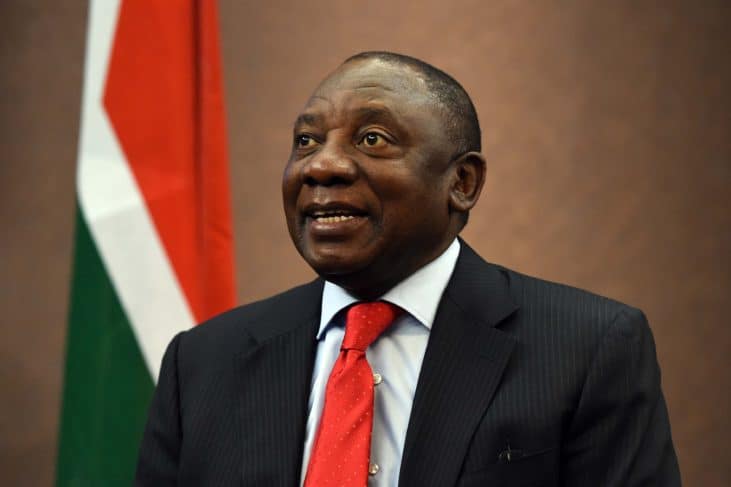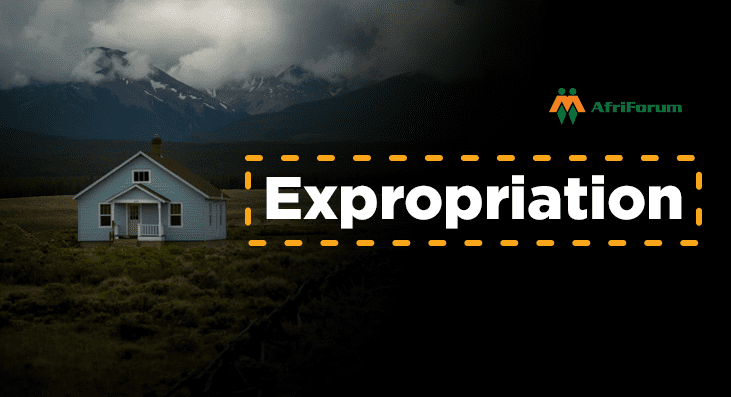South African farmers are indeed in a serious crisis – Ernst Roets
The New York Times responded to the recent tweet by President Donald Trump on the situation in South Africa with two scathing articles: One by Kimon de Greef and Palko Karasz, who argue that the President’s tweet was based on ‘false claims’; the other by Julie Hirschfeld Davis and Norimitsu Onishi, who argue that the President’s tweet ‘seemed to embrace [a] racist narrative on [the] land dispute’ in South Africa.
Because both articles contain falsehoods and rely greatly on a false narrative that is attributed to AfriForum (the largest civil rights group on the African continent, with more than 212 000 members who contribute monthly to our efforts), I believe that a right of reply by our organization is in order.
Despite various campaigns by AfriForum to also protect the rights of black communities in South Africa and despite our repeated condemnation of white racism and racist groups, the New York Times persists in describing AfriForum as a ‘right wing’ group. The newspaper also creates the impression that AfriForum operates in the same sphere as extreme fringe groups such as the Suidlanders, a very small, insignificant conspiracy theorist group that is generally regarded as a laughing stock – even among the very Afrikaners whom they claim to represent.
De Greef and Karasz argue that ‘[t]he tweet gives prominence to a false narrative pushed by some right-wing groups in South Africa that there have been numerous seizures of white-owned land and widespread killings of white farmers.’ They also claim that ‘some right wing groups, like AfriForum, have pushed the false narrative that there have already been numerous seizures of white-owned land.’ The authors then list some prominent American commentators who are generally regarded by the media as ‘alt-right’ and who, according to the authors, support AfriForum’s campaign. This, even though AfriForum has never interacted with any of these commentators and does not even know what their position on these matters is.
Davis and Onishi claim that with his tweet Trump ‘embraced a common talking point among white supremacists who claim white genocide is being perpetrated in South Africa and around the world’ and that the tweet is the result of a ‘right wing’ campaign to convince the world of such.
Both articles seem to have been written from a perspective that government intervention is desirable to enforce equality of outcome. Furthermore, both make a serious attempt at chipping away the credibility of those who are campaigning for property rights and for the protection of farmers in South Africa, by suggesting that their views are firstly racist and secondly based on dodgy stats.
The authors use reports that have been thoroughly discredited since its publication to argue that farm killings in South Africa are at a 20-year-low and are not disproportionate.
There is ample evidence, however, that farm murders are not at a 20-year-low, but rather on a 13-year-high; also that the numbers have been on the increase since 2011, and that these attacks are indeed completely disproportionate to South Africa’s (already extremely alarming) murder rate. As a matter of fact, an independent analysis concluded that a South African farmer’s chance of being killed was estimated to be 3.2 times higher than the country’s average murder rate. This despite the fact that the definition of farm murders largely excludes murders that are committed during social fabric crimes, while roughly 80% of murders in South Africa are indeed committed during social fabric crimes. The result is that the gap between the South African murder rate and the South African farm murder rate is even more severe than many analysts admit.
While they create the impression that concerns about ‘land seizures’ in South Africa are based on fake news, the authors fail to acknowledge that there have been 70 land-related incidents in South Africa between 2013 and 2017, of which 41% occurred in metros. Moreover, a total of 71% of the 2017 incidents turned violent. The authors also fail to point out that 30.3% of people in South Africa have indicated that they would use, or had used, violence for a political cause.
AfriForum is committed to keep the debate on property rights in South Africa from being derailed by it being turned into a race debate. However, it should be noted that the issue has already been racialized by President Cyril Ramaphosa’s claim that land had to be expropriated to be given to black people, whom he refers to as ‘our people’, and by Deputy President David Mabuza’s threats ‘that there would be a ‘violent takeover’ if white people didn’t agree to voluntarily hand over their land to black people. This racial narrative must be vehemently opposed, and we hope that the New York Times will be of assistance in this regard.
In a recent television interview on land reform, a member the ruling ANC’s National Executive Committee re-emphasized that the ANC regarded former Venezuelan president Hugo Chavez a hero. The party also has a disturbing hero worship for some of the world’s most oppressive dictators, including Robert Mugabe and even the notorious Mao Zedong. On the other hand, the party is vehemently opposed to any economic policy that has resulted the economic achievements of countries like South Korea, Singapore, Hong Kong and many Western countries.
The claim for the expropriation of private property in South Africa and the underlying motives by those who are pushing for this policy should not be taken lightly. We should not be so naïve as to regard supporters of Mao Zedong, Robert Mugabe Hugo Chavez as the champions of a noble cause.
Ernst Roets
Ernst is Deputy CEO of AfriForum
Follow Ernst on Twitter at @ErnstRoets






